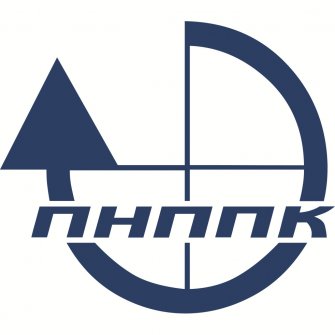Public Joint Stock Company “Perm Scientific and Production Instrument Company” (PNPPK PJSC) has been developing and manufacturing sensors and systems for the navigation, stabilization, and orientation of various types of mobile objects for more than 60 years. This is one of the leading Russian suppliers of navigation instruments and systems. The company has a well-developed scientific and research base to produce various types of fibers and fiber-optic components. Together with its subsidiaries PNPPK PJSC forms the Photonics Fiber Optic Technology Cluster. The Company has implemented and certified a TÜV CERT quality management system that meets the requirements of GOST ISO 9001-2011 and ISO 9001:2008 international standard, in addition to having developed and implemented an environmental management system (EMM) that meets the requirements of GOST R ISO 14001-2007.
Perm Scientific and Production Instrument Company PJSC is headed by the Director, Aleksey Guryevich Andreyev.
A. G. Andreyev is an Honored Economist of the Russian Federation, an associate of the International Academy of Production Organization Sciences and Practice, winner of the Prize of the Government of the Russian Federation in the field of science and technology, member of the Prize Award Council of the Government of the Russian Federation in the field of quality.
The Cooperation Association of Industrial Enterprises, Research Institutes and Design Bureaus, founded at Mr. Andreyev’s behest and with his active participation in 1996, is currently headed by him as the President.
The Perm Electric Device Plant, as the Company was originally named at the time of its establishment in 1956, has long been referred to by the public as the “watch plant,” a codename owing itself to the secret nature of its business. The plant was founded as a part of the state development plan for integrated aircraft and rocket production in the Perm region. Training in a wide range of disciplines began around the same time at the Perm Institute of Mining (now known as the Perm State Technical University) to meet the staffing needs of the new manufacturing operations.
Early products of the plant included remote transmission systems, selsyns and low-power electric motors. In the first three years of plant operation more than 130 different products had been put into production on these lines. The production of autopilot equipment for aviation and control devices for missile equipment was considered a promising direction. Based on these objectives, and the implemented construction and technical equipment of the plant, clean-room assembly shops and precision machining lines were set up.
As the plant succeeded in the development of sophisticated devices for missile control systems, it faced new problems – the production of gyroscopic navigation devices, systems, and complexes. This has become its main specialization ever since.
The beginning of economic and political restructuring brought about challenges of a fundamentally new nature.
Changes in Russia’s military doctrine and the transition to a market economy called for new approaches to all aspects of running the plant, from optimizing the utilization of production facilities to retaining technical and intellectual potential in the new economic conditions. In these years the plant was
“saved” by so-called “general consumer goods” as the production of an extensive range of electric tools was launched and the Perm Instrument Company became a leading brand first in the Soviet and then Russian domestic market.
In addition, the Company looked actively for alternative markets to sell its products. Marine gyrocompass production has become a major business line for the Company from the 1990s onward. Geus, its first gyrocompass based on gyroscopic sensors borrowed from aviation technology, immediately gained appreciation among similar instruments from the world's leading firms. Many foreign and domestic ships are equipped with this gyrocompass. It was installed on the famous sailing vessels Krusenstern, Mir, Sedov, boats of the President of the Russian Federation and commander fleet, as well as the Moscow Government's yacht. The same gyrocompass was tested at high latitudes, reaching the North Pole twice aboard the nuclear-powered icebreaker Yamal.
Another new direction for the company was ground support equipment.
Heading and roll reference systems developed with sensors manufactured by the Company have enabled modernization of air defense systems (S-300V, S-300P, BUK-M12, Pantsir-S1), self-propelled artillery pieces (Msta-S, Vena, Nona-S), multiple rocket launchers (Grad, Uragan, Smerch) and detection and control vehicles (MT-LB, Zoopark).
The tactics of entry into adjacent markets have been complemented with a well-thought-out strategy for new sensor technologies. In the mid-1990s, a choice was made for fiber optics which are now finding increased use in various branches of human activity. The amazing properties of the optical fiber facilitate its use for measuring virtually any physical quantities: temperature, pressure, vibrations, field strength, etc. Optical fiber applications are not limited to gyroscopes, accelerometers and seismic sensors but also include complete telemetry and monitoring systems suitable for any facilities.
The Company pursues this direction in the current and future development of its business, whether in the field of navigation systems and complexes for any moving objects or other areas where there is a need for accurate and reliable measurements using fiber. In this knowledge-heavy business, PNPPK PJSC cooperates closely with leading domestic and foreign firms, research and training institutions, governmental organizations such as the Scientific Center for Fiber Optics of RAS, PSTU, PSU, Rosnano Corporation and others.
A program for building a fiber-optic technology cluster around PNPPK PJSC has been developed and is being implemented successfully with a target completion date of 2015. The goal of the program is to set up a high-tech platform that will enable young scientists and engineers to translate their ideas and knowledge into innovative developments, projects and products demanded in the domestic and global markets alike. Well-trained, competent, creatively oriented personnel are the Company’s main asset and are proof of its future success. Students of PGTU and PSU have already gained access to unique laboratory equipment available at PNPPK. The Department of Photonics has been opened at PSTU and collaboration with PNPPK is underway on setting up a Faculty of Optoelectronic Instrumentation.
PNPPK holds the 1999 and 2011 Quality Prizes of the Government of the Russian Federation for the achievement of remarkable results in the field of product quality, as well as for the introduction of highly effective quality management techniques.
For many years the products manufactured by PNPPK have been leaders in the 100 Best Goods of Russia competition program. The company holds the Quality Leader Award from the European Quality Organization and State Standards Committee of the Russian Federation.






















